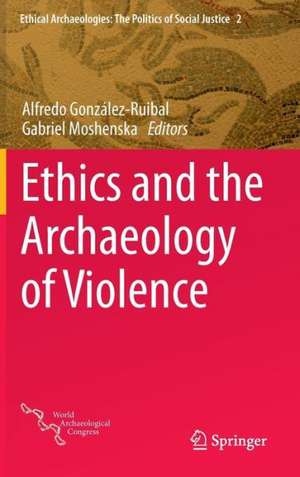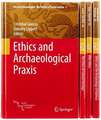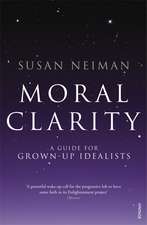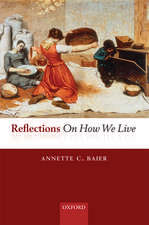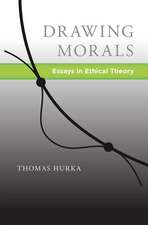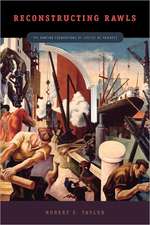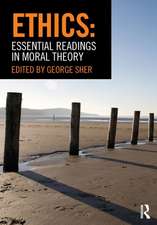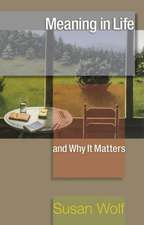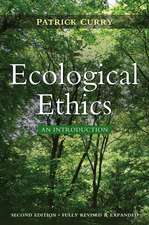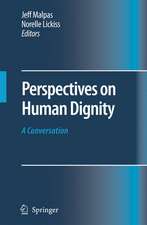Ethics and the Archaeology of Violence: Ethical Archaeologies: The Politics of Social Justice, cartea 2
Editat de Alfredo González-Ruibal, Gabriel Moshenskaen Limba Engleză Hardback – 11 noi 2014
| Toate formatele și edițiile | Preț | Express |
|---|---|---|
| Paperback (2) | 394.44 lei 38-44 zile | |
| Springer – 25 feb 2016 | 394.44 lei 38-44 zile | |
| Springer – 23 aug 2016 | 557.75 lei 38-44 zile | |
| Hardback (1) | 393.52 lei 6-8 săpt. | |
| Springer – 11 noi 2014 | 393.52 lei 6-8 săpt. |
Preț: 393.52 lei
Nou
Puncte Express: 590
Preț estimativ în valută:
75.30€ • 78.83$ • 62.31£
75.30€ • 78.83$ • 62.31£
Carte tipărită la comandă
Livrare economică 05-19 aprilie
Preluare comenzi: 021 569.72.76
Specificații
ISBN-13: 9781493916429
ISBN-10: 1493916424
Pagini: 180
Ilustrații: XVII, 243 p. 15 illus., 13 illus. in color.
Dimensiuni: 155 x 235 x 17 mm
Greutate: 0.54 kg
Ediția:2015
Editura: Springer
Colecția Springer
Seria Ethical Archaeologies: The Politics of Social Justice
Locul publicării:New York, NY, United States
ISBN-10: 1493916424
Pagini: 180
Ilustrații: XVII, 243 p. 15 illus., 13 illus. in color.
Dimensiuni: 155 x 235 x 17 mm
Greutate: 0.54 kg
Ediția:2015
Editura: Springer
Colecția Springer
Seria Ethical Archaeologies: The Politics of Social Justice
Locul publicării:New York, NY, United States
Public țintă
ResearchCuprins
Chapter 1: Introduction: the only way is ethics.- Chapter 2: Ethics in action: a viewpoint from Israel/Palestine.- Chapter 3: Archaeological ethics and violence in post-genocide Rwanda.- Chapter 4: All our findings are under their boots! The monologue of violence in Iranian archaeology.- Chapter 5: Archaeology of historic conflicts, colonial oppression and political violence in Uruguay.- Chapter 6: “Everything is kept in memory.” Reflections on the memory sites of the dictatorship in Buenos Aires (Argentina).- Chapter 7: Archaeology, anthropology and civil conflict. The case of Spain.- Chapter 8: A gate to a darker world: excavating at the Tempelhof airport (Berlin).- Chapter 9: Archaeology, National Socialism and rehabilitation: the case of Herbert Jankuhn (1905-1990).- Chapter 10: The ethics of public engagement in the archaeology of modern conflict.- Chapter 11: Military advocacy of peaceful approaches for cultural property protection.- Chapter 12: Cognitive dissonance and the military-archaeology complex.- Chapter 13: Working as a forensic archaeologist and/or anthropologist in post-conflict contexts: a consideration of professional responsibilities to the missing, the dead and their relatives.- Chapter 14: Virtues impracticable and extremely difficult: The human rights of subsistence diggers.
Notă biografică
Gabriel Moshenska is Lecturer in Public Archaeology at UCL, where he coordinates the MA in Public Archaeology and teaches the archaeology of modern conflict. He has a PhD in the archaeology, material culture and memory of the Second World War. His research interests are wide-ranging in the extreme. He has published studies of children and material culture; the history of Egyptian mummy unwrappings in nineteenth century Britain; Mortimer Wheeler’s philosophy and practice of public archaeology; gas masks; archaeological ghost stories; air warfare and commemoration; the ethics of burial archaeology; Rudyard Kipling; the economics of archaeology; the archaeology of internment and imprisonment; alternative or ‘fringe’ archaeologies; ‘absent’ heritage; community archaeology; cultural memory; the archaeology of air raid shelters; and the contested reception of Milton’s theological writings in the early nineteenth century. He is currently working on a biography of the surgeon andantiquarian Thomas Joseph Pettigrew.
Alfredo González-Ruibal is a staff scientist at the Institute of Heritage Sciences (Incipit) of the Spanish National Research Council (CSIC). He holds a PhD in Prehistoric Archaeology from the Complutense University of Madrid. His research focuses on the archaeology of the contemporary past and material culture. He has traced the destructive operations of modernity (war, dictatorship, colonialism and predatory capitalism) through the archaeological record in Spain, Ethiopia, Equatorial Guinea and Brazil. He has also investigated the role of material culture in resisting modernity and the state. An outcome of this latter work is An archaeology of resistance: time and materiality in an African borderland (forthcoming), based on a long-running project in Ethiopia. His research on the contemporary past has been published in major journals (Current Anthropology, Antiquity, World Archaeology). He has recently completed a project on the archaeological remains of the Spanish Civil War and the Franco dictatorship. He is co-editor of the Journal of Contemporary Archaeology (Equinox Press) and of the volume Reclaiming Archaeology: Beyond the tropes of modernity (Routledge, 2013).
Alfredo González-Ruibal is a staff scientist at the Institute of Heritage Sciences (Incipit) of the Spanish National Research Council (CSIC). He holds a PhD in Prehistoric Archaeology from the Complutense University of Madrid. His research focuses on the archaeology of the contemporary past and material culture. He has traced the destructive operations of modernity (war, dictatorship, colonialism and predatory capitalism) through the archaeological record in Spain, Ethiopia, Equatorial Guinea and Brazil. He has also investigated the role of material culture in resisting modernity and the state. An outcome of this latter work is An archaeology of resistance: time and materiality in an African borderland (forthcoming), based on a long-running project in Ethiopia. His research on the contemporary past has been published in major journals (Current Anthropology, Antiquity, World Archaeology). He has recently completed a project on the archaeological remains of the Spanish Civil War and the Franco dictatorship. He is co-editor of the Journal of Contemporary Archaeology (Equinox Press) and of the volume Reclaiming Archaeology: Beyond the tropes of modernity (Routledge, 2013).
Textul de pe ultima copertă
This volume examines the distinctive and highly problematic ethical questions surrounding conflict archaeology. By bringing together sophisticated analyses and pertinent case studies from around the world it aims to address the problems facing archaeologists working in areas of violent conflict, past and present. Of all the contentious issues within archaeology and heritage, the study of conflict and work within conflict zones are undoubtedly the most highly charged and hotly debated, both within and outside the discipline. Ranging across the conflict zones of the world past and present, this book attempts to raise the level of these often fractious debates by locating them within ethical frameworks. The issues and debates in this book range across a range of ethical models, including deontological, teleological and virtue ethics. The chapters address real-world ethical conundrums that confront archaeologists in a diversity of countries, including Israel/Palestine, Iran, Uruguay, Argentina, Rwanda, Germany and Spain. They all have in common recent, traumatic experiences of war and dictatorship. The chapters provide carefully argued, thought-provoking analyses and examples that will be of real practical use to archaeologists in formulating and addressing ethical dilemmas in a confident and constructive manner.
Caracteristici
Includes specific case studies to help the researcher and student to identify and clarify the links between abstract ethical values and the painfully real ethical dilemmas that archaeologists are forced to confront in conflict zones Covers a number of issues that have captured media attention in recent years, including the looting of archaeological sites in Iraq and Afghanistan, the entanglement of heritage and conflict in Israel, Palestine and the ancient Yugoslavia Addresses the subjectivity of ethics in conflict archaeology by utilizing "debate" formats in several of the chapters
